“You know, the type of person who would do something like that to Charlie Kirk would love to do it to us,” Utah Gov. Cox said Trump told him when he called him after his press conference a short time after the news that Tyler Robinson had been apprehended.
Trump then went on to recite statistics suggesting that the presidency was “one of the most dangerous jobs on the planet.” (From The Atlantic)
Cox has been praised for what he said when he addressed the nation after Kirk’s killer was taken into custody. It was what was needed. It came from a governor, but one could call it “presidential.”
I can only surmise that Trump thought he was talking to a kindred spirit because Cox is a Republican and would be more concerned with protecting his own life than with healing the nation.
Perhaps Trump wasn’t aware that Cox, who is considered a moderate, in the primary for his second term, beat a candidate to the right of him who bragged about how much he supported the president (read article).
According to The Times: “Though Mr. Trump did not weigh in on the governor’s race, Mr. Lyman emphasized his support for the former president throughout his campaign.”
There are 27 state governors so I can understand why Trump might not know whether all of them are firm supporters of him. He may assume that if they have an R after their name they are as self-centered as he is.
I doubt Trump listened to or read about what Gov. Cox said in his lengthy interview with Martha Raddatzof ABC News. Here are excerpts:
RADDATZ: And -- and, Governor, let’s go back to Friday and your very powerful words and advice. You said this was a watershed moment that could be a turning point in the history, depending on the collective actions.
What needs to happen for this to be a good turning point?
COX: Well, you know, right -- right now we’re -- we’re in a dark place. Everybody gets that, I think. And we -- we have choices. And we, in my political philosophy, in my -- in my religious philosophy, we believe in -- in agency. That every one of us gets to make our own decisions.
And -- and I think -- I -- I hate this idea that what, you know, what a governor says or what the president says, that’s what matters more than anything else. It -- it is not. And if we’re waiting for a -- a president or a governor of Utah or anywhere else to -- to get us out of this mess, that’s -- that’s just never going to happen.
And -- and so we -- every one of us has to make a decision. Are we going to hate our neighbor? Are we going to hate the other side? Are we going to return violence with violence? Or are we going to find a different path? Are we going to get out of those social media, those dark places of the internet where the conflict entrepreneurs reside, who are preying upon us, these -- these companies with trillion dollar market caps who are using dopamine, just like fentanyl, to addict us to our product and -- and lead us -- again, those algorithms lead us to more outrage? Can we put that aside? Can we go and -- and serve our -- our fellow human beings? Can we do some good in our neighborhood? Can we hug a family member? Can we talk to a neighbor that we disagree with? That’s -- that’s up to us. And that’s the only way out of this. There is nothing else we can do to -- to solve this -- this dark chapter in our history.
Cox went on to say:
RADDATZ: And -- and, Governor, let’s go back to Friday and your very powerful words and advice. You said this was a watershed moment that could be a turning point in the history, depending on the collective actions.
What needs to happen for this to be a good turning point?
COX: Well, you know, right -- right now we’re -- we’re in a dark place. Everybody gets that, I think. And we -- we have choices. And we, in my political philosophy, in my -- in my religious philosophy, we believe in -- in agency. That every one of us gets to make our own decisions.
And -- and I think -- I -- I hate this idea that what, you know, what a governor says or what the president says, that’s what matters more than anything else. It -- it is not. And if we’re waiting for a -- a president or a governor of Utah or anywhere else to -- to get us out of this mess, that’s -- that’s just never going to happen.
And -- and so we -- every one of us has to make a decision. Are we going to hate our neighbor? Are we going to hate the other side? Are we going to return violence with violence? Or are we going to find a different path? Are we going to get out of those social media, those dark places of the internet where the conflict entrepreneurs reside, who are preying upon us, these -- these companies with trillion dollar market caps who are using dopamine, just like fentanyl, to addict us to our product and -- and lead us -- again, those algorithms lead us to more outrage? Can we put that aside? Can we go and -- and serve our -- our fellow human beings? Can we do some good in our neighborhood? Can we hug a family member? Can we talk to a neighbor that we disagree with? That’s -- that’s up to us. And that’s the only way out of this. There is nothing else we can do to -- to solve this -- this dark chapter in our history
Then Raddatz asked him about his conversation with Trump.
RADDATZ: Did -- did he warn you that this type of violence could affect you?
COX: Yes. Yes, he did. He -- I mean this -- this is a -- a very dark conversation, but -- but he, of course, was almost assassinated. A fraction of an inch away from having this very thing happen to him. And that’s what we talked about. These are -- these are very dangerous jobs these days and -- and -- and so, it’s not lost on us.
We’re -- we’re human beings too. President Trump is a human being. Whether you love him or -- or you hate him, he’s -- he’s a -- he’s a human being and these are -- these are very tragic circumstances that impact all of us.
RADDATZ: And -- and, Governor, just -- just lastly, you immediately talked about Democrats who had already been targeted. President Trump said nothing about the political violence against Democrats. In fact, he blamed the radical left. What’s your reaction to that? Is that something you think he should be doing?
COX: Well, look, President Trump is -- is very angry. And Charlie is his close, personal friend. There is a lot of anger. A lot of anger on -- on the right, on -- on my side of the aisle. And I've certainly felt that. And in this case, it -- it does appear that that’s true. Again, more -- more information is coming, and we’ll learn more over time.
I am struck by Cox expressing empathy for the president even though we don’t know whether he was taken aback by how self-centered he was.
Read the transcript of the entire interview here.
There are two defintions of the word “presidential.” One is anything coming from a president, as in “a presidential proclamation.” The other is something said by a president which is dignified and worthy of someone leading a country.
Cox’s words have been presidential. There is such a word as “governorial” (see defintion) but it isn’t commonly used. We could call him presidentially governorial.
We could call him presidentially governorial
Check back later.
…

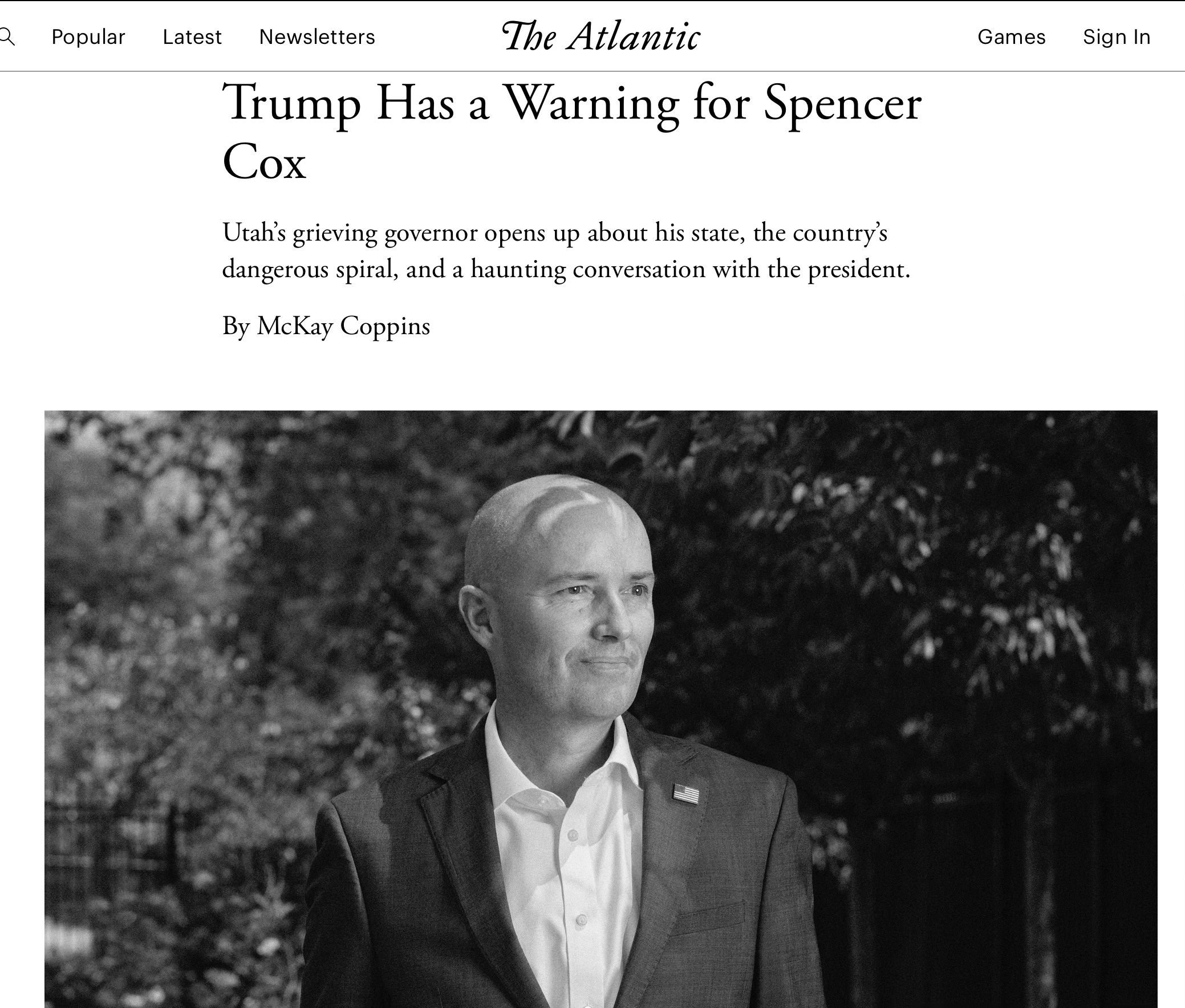
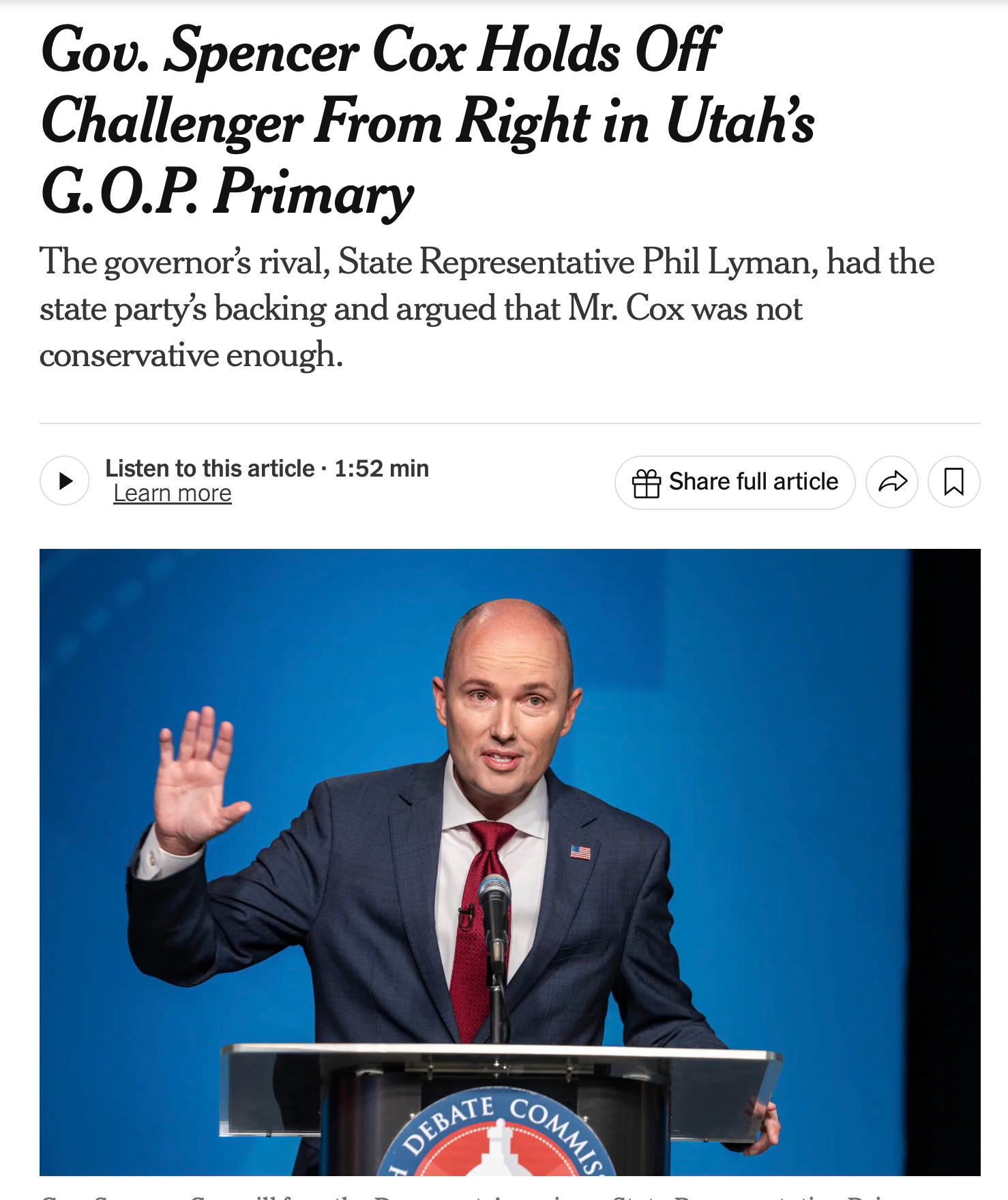
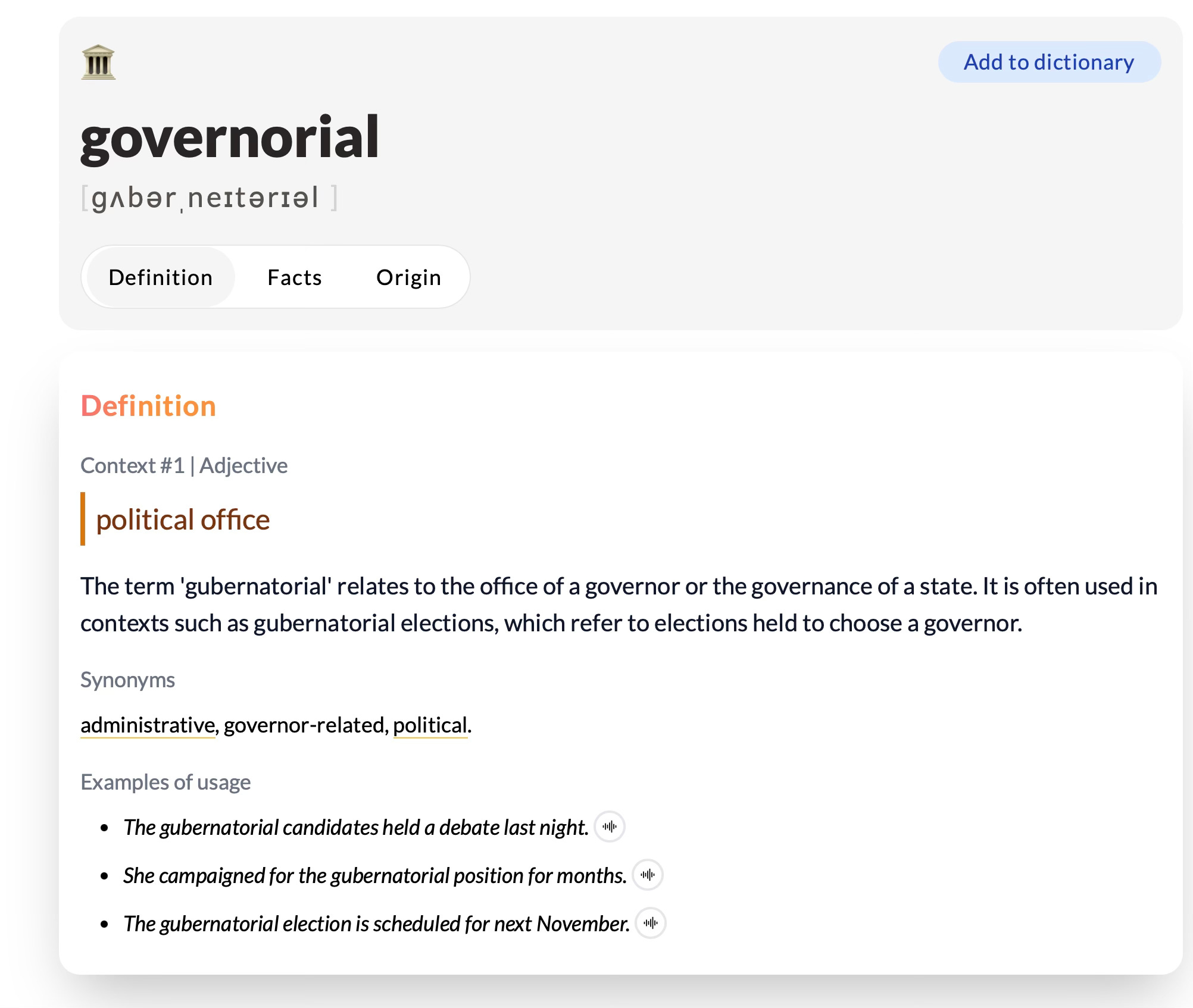

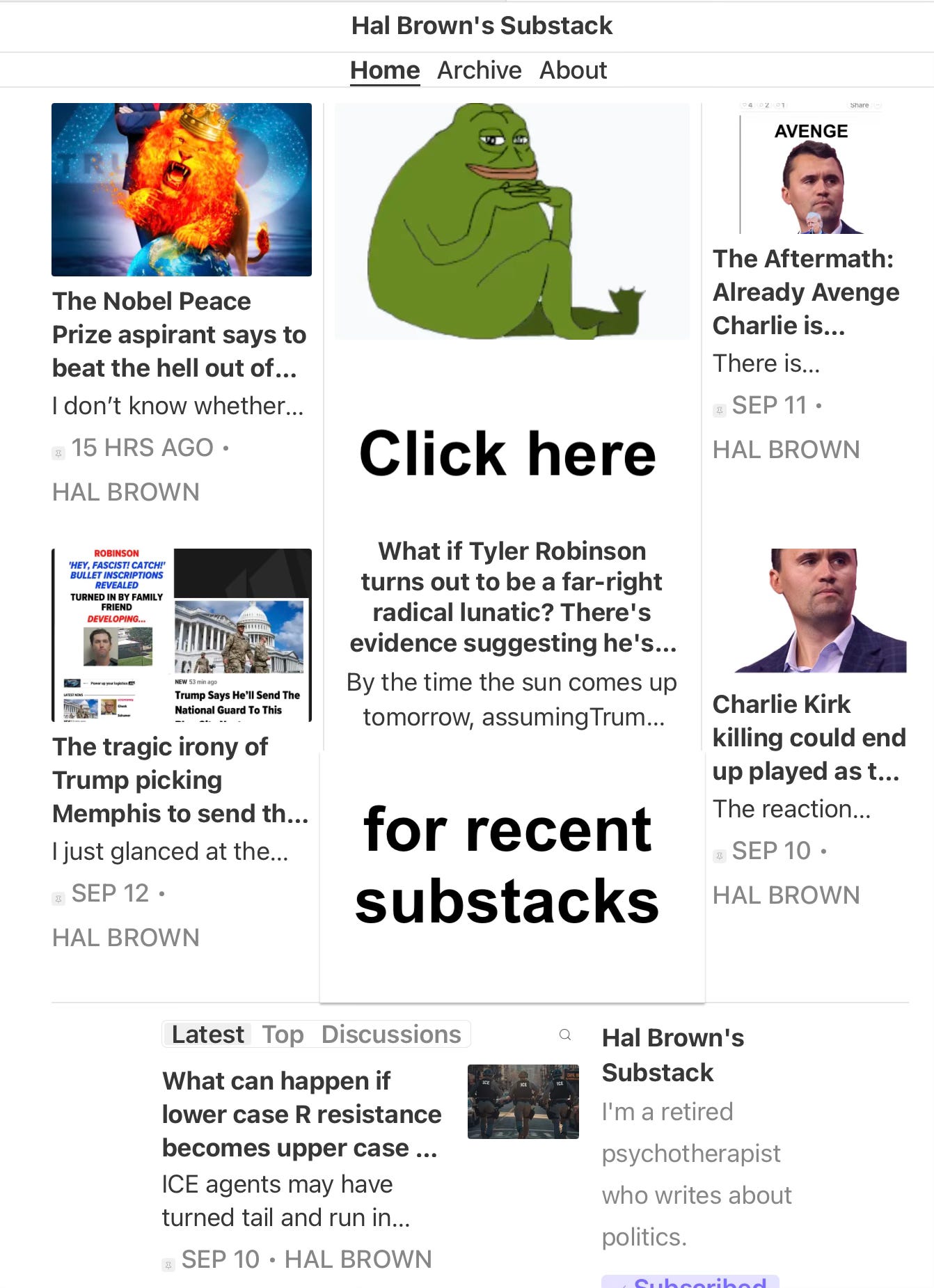
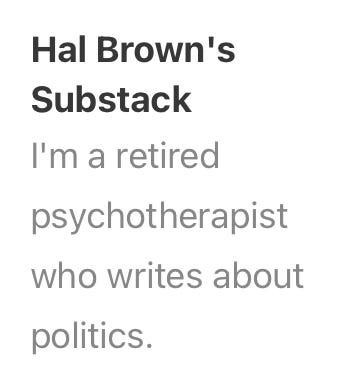




No comments:
Post a Comment